This internal workshop, with five international invited discussants, will review and discuss the research completed in the project to-date, and reflect on future directions.
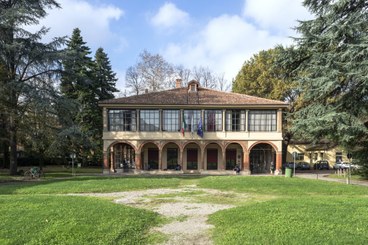
Date:
Event location: University of Bologna
Type: TheGAME events

The mid-term workshop of TheGame ERC project, “Counter-geographies of the Balkan Route,” took place from March 13 to 14, 2025, at Palazzina della Viola at the University of Bologna.
The research team and staff of the project gathered in Bologna, together with five external international scholars, to critically reflect on and discuss the research of the project to-date. Following welcoming remarks, the workshop was divided into four substantive sessions. While a primary discussant was designated for each session (and noted below), each session incited commentary from several of the invited scholars, and discussion and response among TheGame researchers present, beyond the scope of this summary report.
The first session, “Routes and Counter-geographies,” was chaired by Lorenzo Vianelli. The session began with an overview of the project to-date, provided by Claudio Minca, introducing the context and background of the research project, and the theoretical and empirical questions raised by the ever-changing and multiplicitous spatialities of the Balkan Route. Yolanda Weima shared reflections on “Route Thinking?” prepared together with Claudio Minca, reflecting on whether it is appropriate to describe the multiplicity of diverse trajectories as a “route,” particularly given scrutiny of the term by critical geographers and scholars of migration in recent years. Lucija Klun’s presentation, entitled “Walking the Route,” drew attention to the physical realities of walking which shape the Route at various stages for nearly all its travellers. Alexandra Rijke was unable to attend the workshop, however her research on “Walling the Route” was summarized by Claudio Minca.
Lorenzo Pezzani (University of Bologna), as the first external discussant, opened the conversation that would continue for the remainder of the workshop. He focused his remarks through four primary frames to reflect on the question of the ‘route’ as an analytical lens, and the research presented, namely: (1) the importance of scale as an approach to contesting hegemonic route thinking; (2) the need to complexify binary approaches to the route “from above” and “from below;” (3) consideration of temporalities; and (4) the necessity of interrogating the function of maps we engage with.
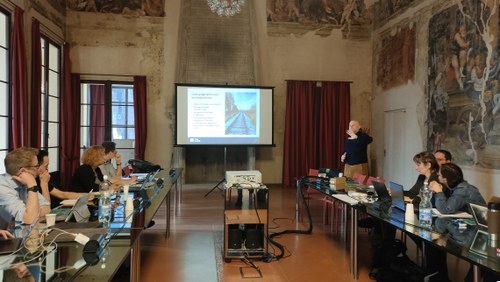
The second session, “Law, Politics, and Borders,” chaired by Emma Beatrice Farina, opened with a presentation on the “Campization of the Route” by Yolanda Weima, reflecting on patterns in of “campization” across the Route, and empirical research on Temporary Reception Centres in Sarajevo. Dragan Umek and Claudio Minca examined the ways in which the openings and closures of camps are part of the strategic element of how the Serbian state manages its relation with the Balkan Route in their presentation on “The Serbian ‘game.’” In the third presentation of the session, “Externalizing the Common European Asylum System in the Balkans,” Lorenzo Vianelli examined the governance of asylum systems in relation to the process of European englargement, and the candidate (or potential candidate) status of countries within the Route.
In responding to these presentations, discussant Alex Jeffrey (University of Cambridge) drew upon the concept of “nested legalities” to note the plural ways in which law is present within the topics addresed by the three presentations, in plural ways, shaped by relational processes at various scales. Among many other observations, Jeffrey reflected on the tension between migrant mobilities and states’ desires for stability, the sovereign logic at play in border securitization, and the wider legal context of international humanitarian law.
The final session of the first day “Camps and Archipelagos” further deepened reflection on camp geographies within the route. Roberta Gentili presented research on “Camp geographies in Una-Sana,” including reflections on her ethnographic research along the Croatian-Bosnian border. Valeria Raimondi addressed the complex recent history of “Camp Geographies in Greece,” drawing attention to several important shifts in camp geographies in mainland Greece, and the effects for people subject to encampment. Moving attention from the mainland to the islands, Vasiliki Makrygianni reflected on the possibilities of archipelagic thinking in her multi-sited research “Navigating the eastern Aegean archipelago.”
Discussant Olga Lafazani (Humboldt University of Berlin) noted the multiple spatial and temporal scales addressed in the research in the session specifically, and the project more broadly, and how the project thus captures multiple locations and their interrelations in space through routes and passages of people-on-the-move, but also their changes through time. She re-iterated the importance of studying camps as “emplaced” within shifting regimes of migration management and bordering, complex infrastructural histories, as well as a plethora of other factors, requiring embedded research—as was presented in the session.
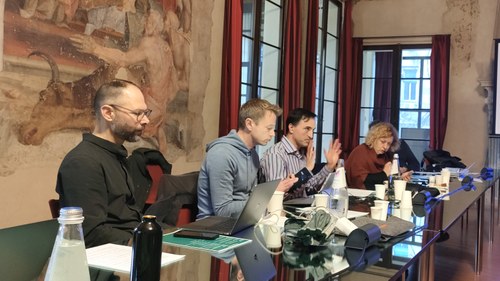
The second day of the workshop began with a session on “Invisible Spaces, Biopolitics, and Abandonment.” Claudio Minca presented on “The Politics of the Refugee Ban in Trieste,” arguing that “the ban” is key to to understanding interplay of visibility and invisibility, and exclusion and inclusion, and the withdrawal of care, in this key site which ambivalently marks the “end of the game” for people-on-the-move. Viki Mladenova shared theoretical insights on “Macedonian invisible migrant spatialities,” weaving together biopolitical theories and empirical ethnographic research shaped by the very informalities which govern the migration context and connecting the local context of border communities with the conditions of the route. Taking “An archaeological approach to the Balkan Route,” Emma Beatrice Farina discussed the challenges and possibilities of archaeological research at a wide variety abandoned makeshift sites across the route.
Discussant Noam Leshem (Durham University) reflected on the spectrum of care and uncare across these diverse contexts. He noted the different and nuanced articulations of abandonment, and therefore the different articulation of sovereign care that appear in the research across these three papers. All three papers, along with the previous presentations, return to an “archive of abandonment,” which leaves varied traces: paper trails, stored biometric data, discarded material, and more.
The concluding session of the workshop was a broad discussion of the research presented over the two days, opened with insightful commentary by Sebastian Cobarrubias Baglietto (University of Zaragoza). His reflections tied together themes from across both days of the workshop, reflecting on the broad questions posed by the project, as well as questions raised by underlying assumptions within our work. He considered the implications of a multi-scalar approach to these questions, and the centrality of mobility to tying together diverse dynamics of the Route across scales of analysis. Cobarrubias further challenged us to think about countermapping, including when, why, and how it might be useful, not only for thinking about space differently, but also for engaging spatial history. The session continued with further reflection by each of the external scholars, as well as all of TheGame staff and researchers present.
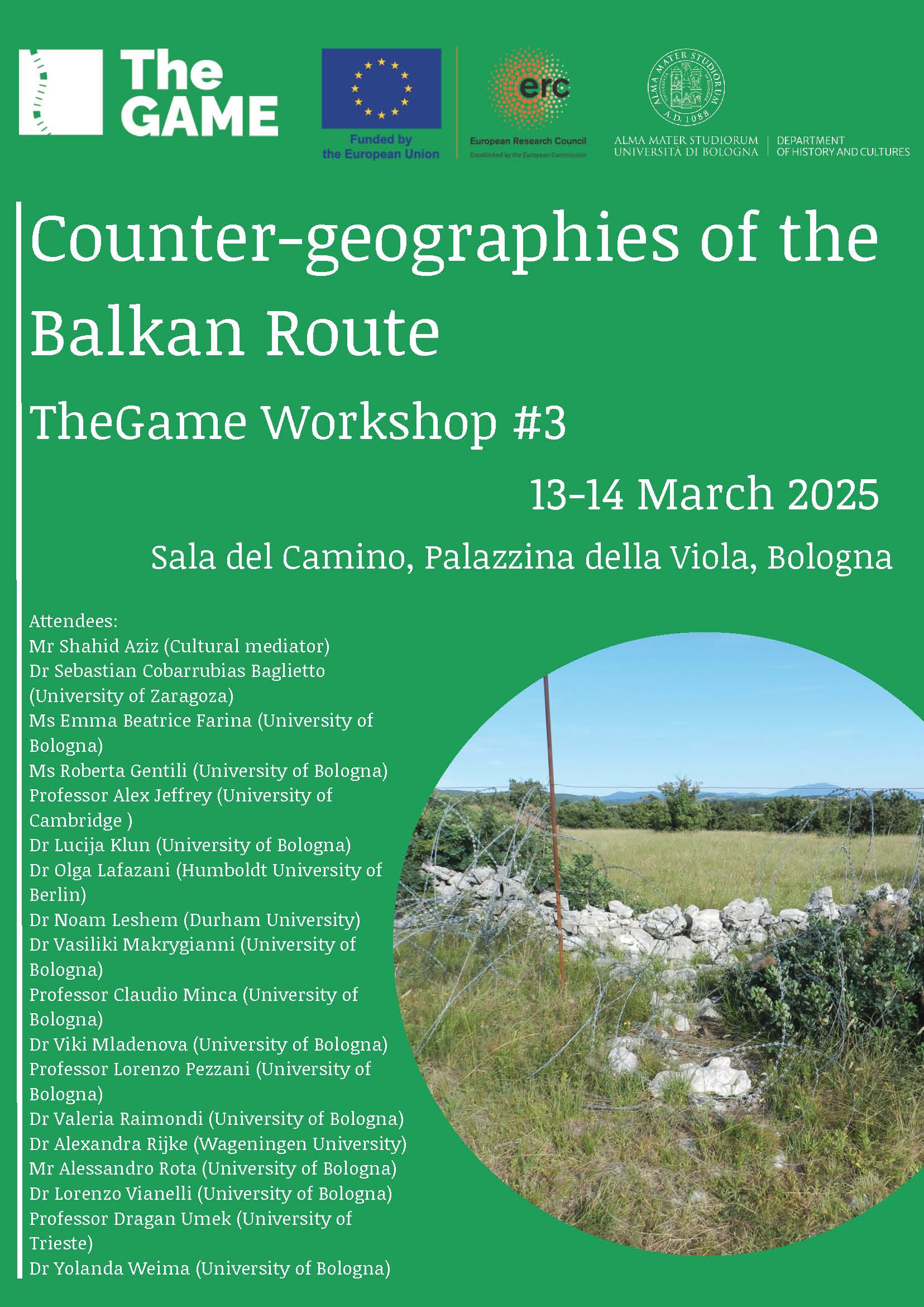
The Workshop Poster
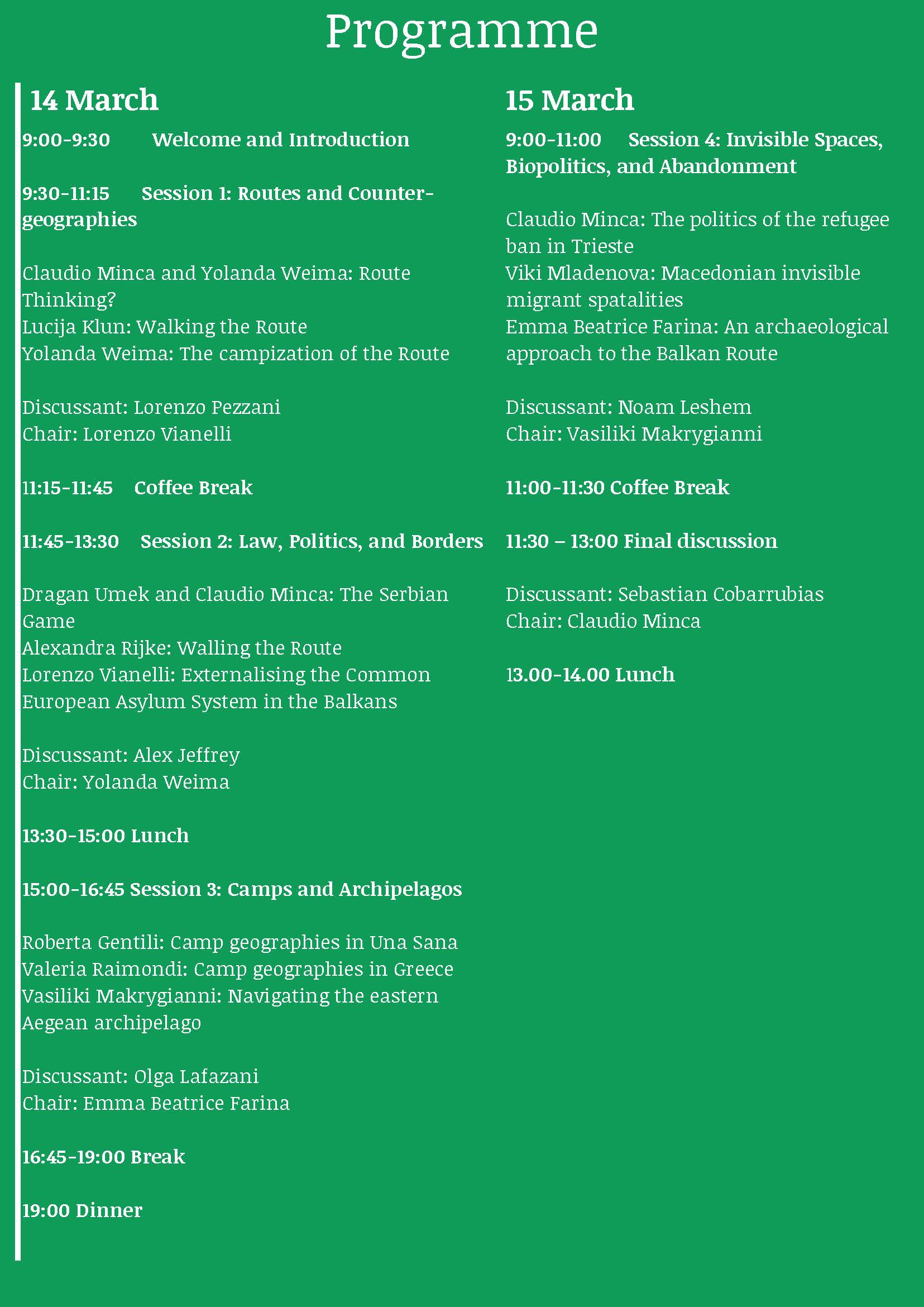
The Workshop Programme
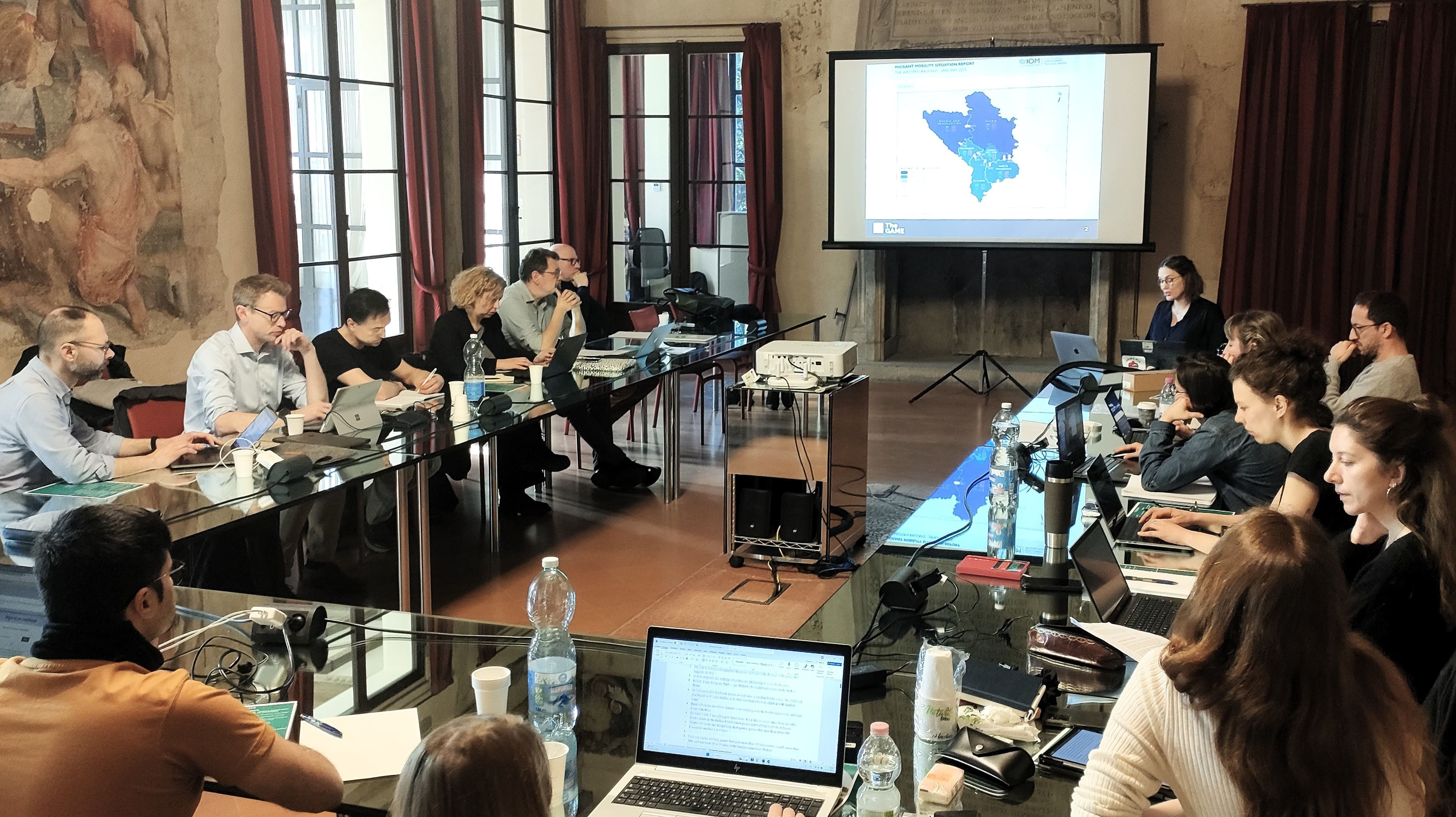
Yolanda's presentation
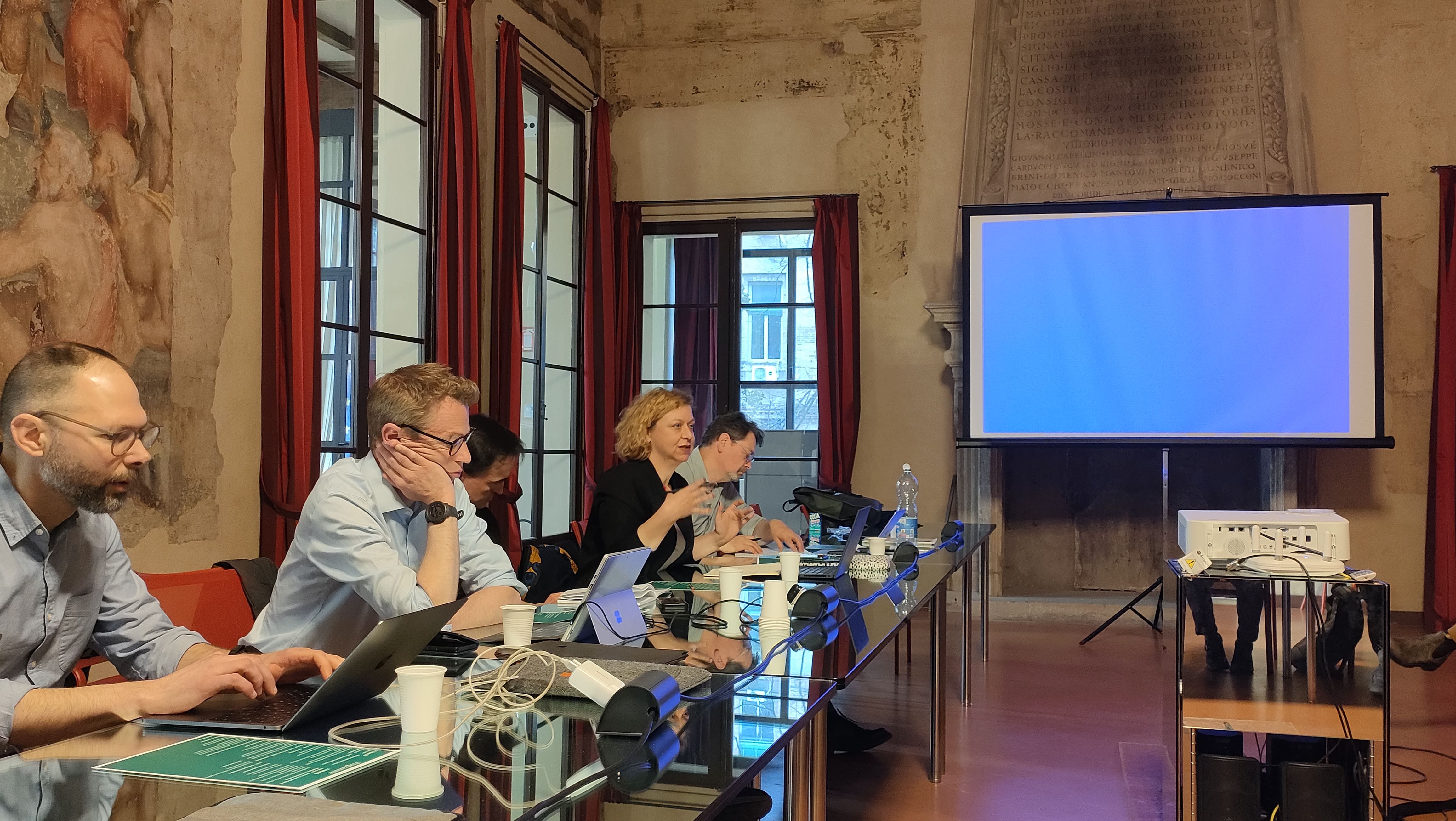
The external scholars invited to the workshop

The external scholars invited to the workshop
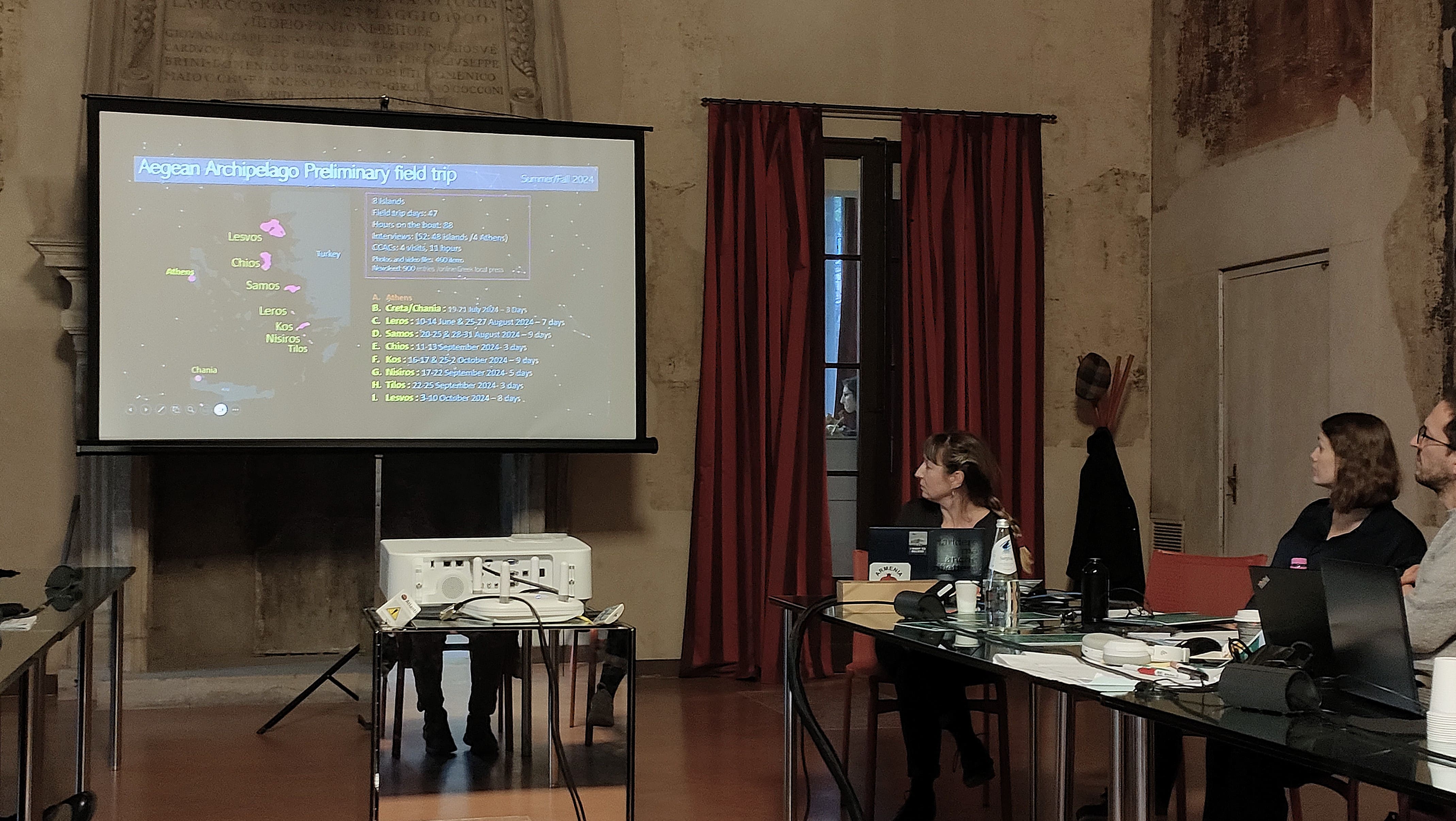
Vasiliki presents her fieldwork on the Greek islands
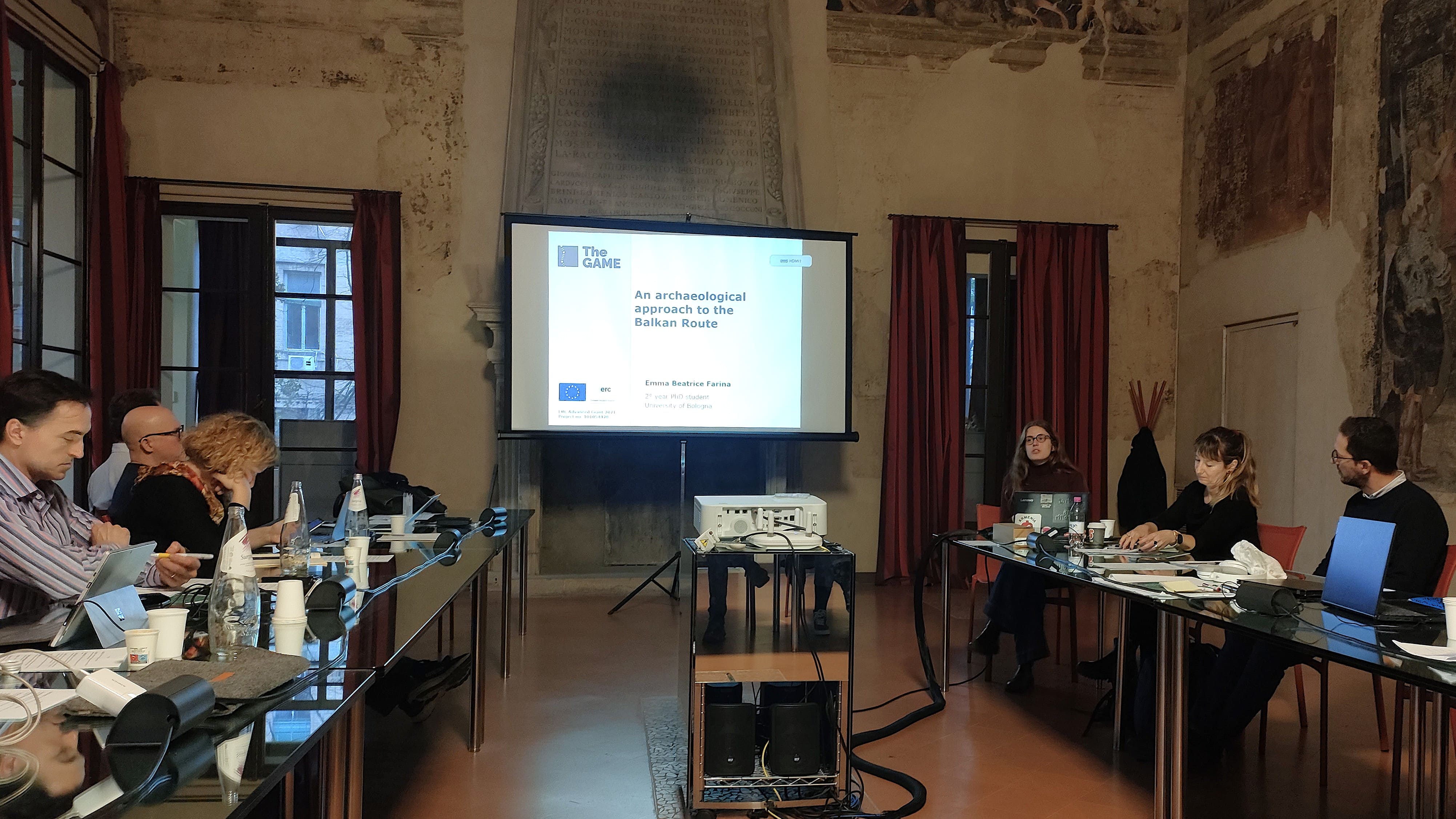
Emma presenting her research
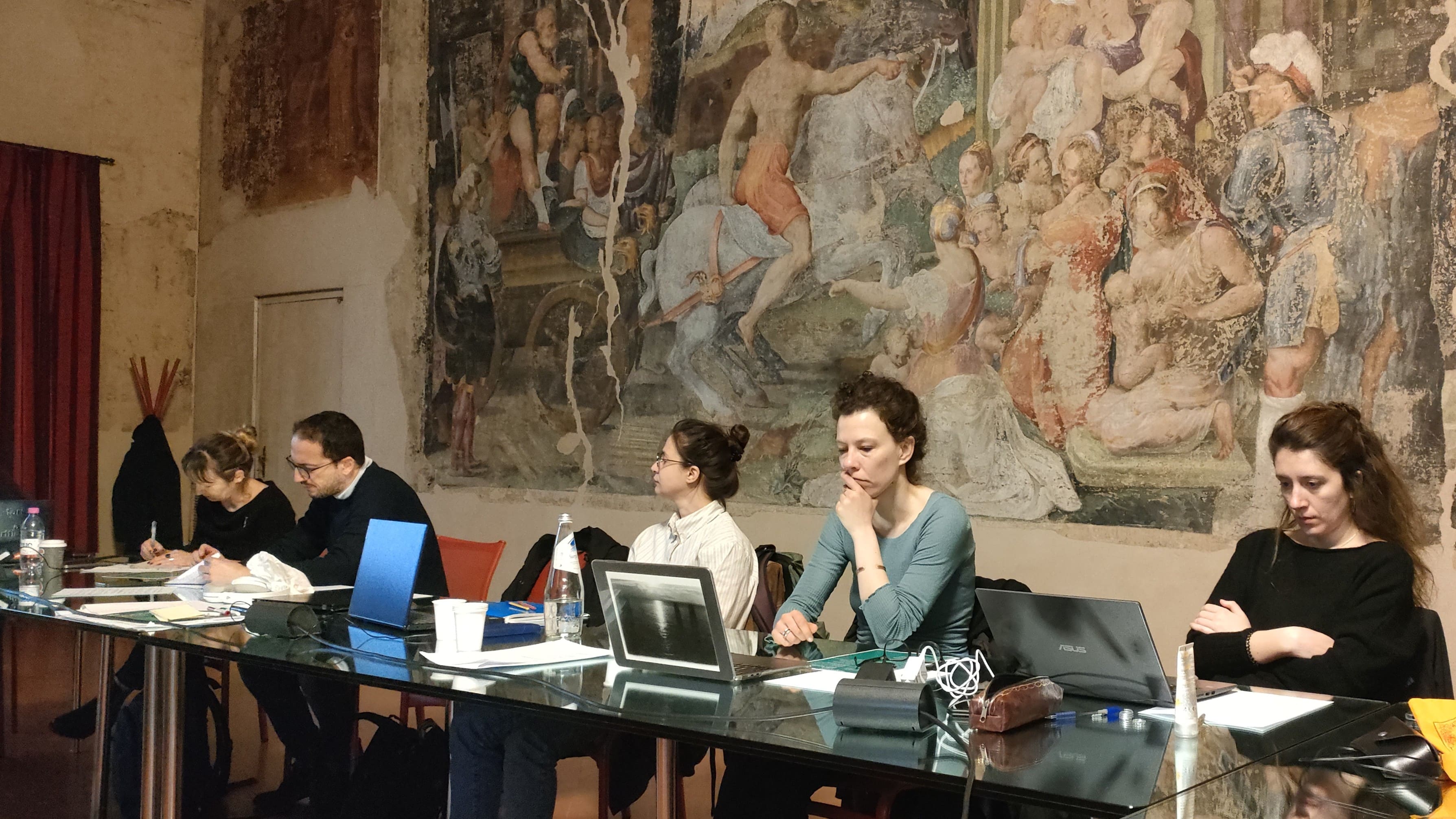
The project's research team during the presentations